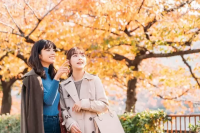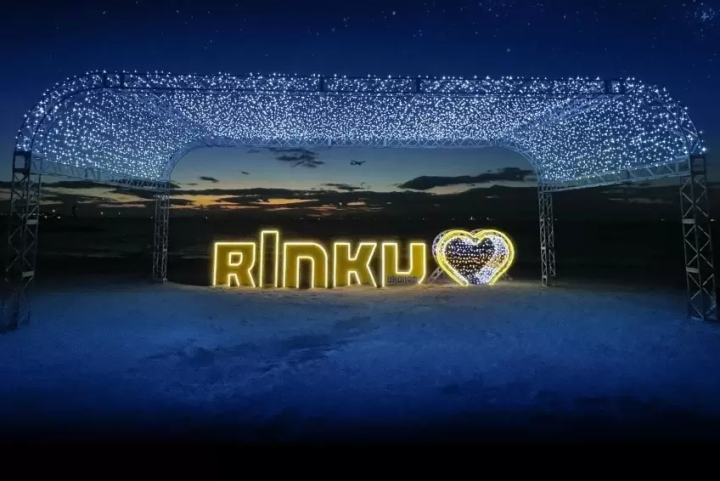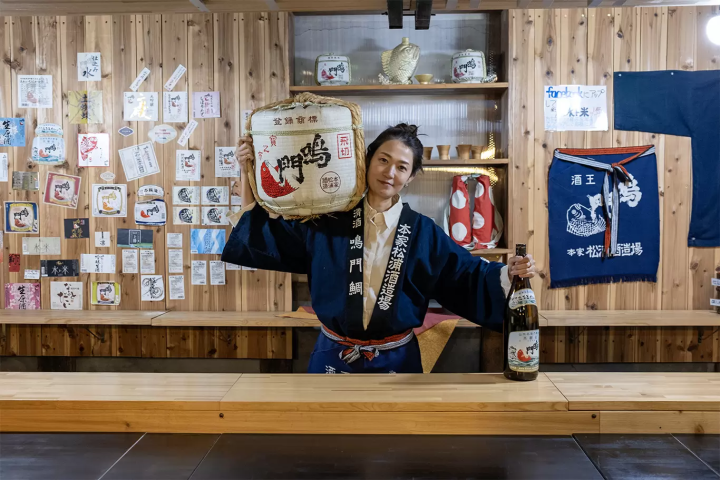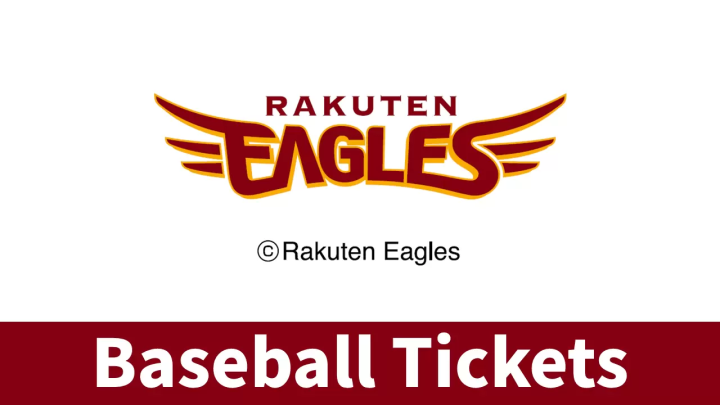100 Basic Japanese Phrases for Your Trip to Japan

Our list of 100 Japanese phrases for traveling to Japan covers basic questions, greetings, phrases to express gratitude, as well as words you can use when shopping, at restaurants, or in case of an emergency.
Basic Japanese for Travelers
English is still not widely spoken in Japan, though there are many multilingual signs and information centers within train stations and at major sightseeing destinations.
Read on to learn one hundred basic Japanese phrases with their meaning and pronunciation. For a smooth trip, we also encourage you to use an automatic translation device like Pocketalk; you can use it to scan Japanese text and generate a basic translation, or to translate your own words into Japanese when you want to communicate with staff or locals at your destination.
Top 100 Japanese Phrases for Travel
1. Basic Expressions: Greetings and Thanks
2. Transportation: Trains, Taxis, Payment
3. Destinations: Shrines, Temples, etc.
4. Shopping: How to Ask for Things
5. For Restaurants, Cafes, and Izakaya Pubs
6. Accommodation: Hotels and Japanese Inns
7. For Trouble and Emergencies
1. Basic Expressions: Greetings and Thanks

Photo by Pixta
おはようございます
Ohayo gozaimasu (pronounced O-ha-yo-o-go-za-i-mas)
Good morning
こんにちは
Konnichiwa (pronounced Kon-ni-chi-wah)
Hello/Hi
こんばんは
Konbanwa (pronounced Kon-ban-wah)
Good Evening
またね
Mata ne (pronounced Ma-ta-ne)
Bye/See you
People may often translate "goodbye" as "sayonara" in Japanese, but this is a much more formal word and tends to have a more permanent tone to it, like a farewell. When speaking casually, "mata ne" is typically used.
すみません
Sumimasen (pronounced Su-me-ma-sen)
Excuse me/Pardon?
ごめんなさい
Gomen nasai (pronounced Go-men-nah-sigh)
I'm sorry
ありがとう
Arigato (pronounced A-ri-gah-toe)
Thank you
おおきに
Ookini (pronounced O-o-ki-ni)
Thank you (used in Kansai, especially Osaka)
わかりません
Wakarimasen (pronounced Wa-ka-ri-ma-sen)
I have no idea/I don't know
はい
Hai (pronounced Hi)
Yes
いいえ
Iie (pronounced E-ye)
No
あなた
Anata (pronounced A-na-ta)
You
わたし
Watashi (pronounced Wa-ta-she)
Me, myself, I
英語
Eigo (pronounced Eh-go)
English
If you are trying to find information in English, you may want to ask someone for help, most easily done by saying "Eigo?" However, you may have some trouble finding an English speaker when outside of major sightseeing areas.
これはなんですか?
Kore wa nan desu ka? (pronounced Ko-re-wa-nan-des-ka)
What is this?
Don’t hesitate to ask questions. People in Japan are kind and will definitely try their best to help you.
それはどこですか?
Sore wa doko desu ka? (pronounced So-re-wa-do-ko-des-ka)
Where is that?
◯◯に行きたい
... ni ikitai (pronounced ...ni i-ki-tai)
I want to go to --.
失礼します
Shitsurei shimasu (pronounced She-tsu-ray-she-mas)
May I enter?/Thank you for your time/Goodbye
This is a more formal sentence used when entering or leaving a room, hanging up the phone, or other business/formal situations. Just keep in mind that this is a formal phrase and is spoken when being very polite.
かわいい
Kawaii (pronounced Ka-wah-e [rhymes with "Hawaii"])
Cute/Sweet/Adorable/Gorgeous
"Kawaii" is a useful word, it can describe any number of things, from food to goods to people.
うれしい
Ureshii (pronounced U-re-shi-i)
I’m happy.
かなしい
Kanashii (pronounced Ka-na-shi-i)
I’m sad.
たのしい
Tanoshii (pronounced Ta-no-shi-i)
I’m having fun.
すき
Suki (pronounced Su-ki)
I like it/I like you.
きらい
Kirai (pronounced Ki-rai)
I don’t like it/I don’t like you.
↑ Return to the top of article.
2. Transportation

Photo by Pixta
両替
Ryogae (pronounced Ryo-ga-eh)
Cash exchange
初乗り
Hatsunori (pronounced Ha-tsu-no-ri)
The base fare (on taxi)
The "hatsunori" fee is usually clearly displayed inside taxis near the car navigation system on the front. Generally, it is written “初乗り◯◯円”, showing how much the base fare is.
Also, there should be a small monitor on the front displaying the total fare for the distance run. You are unlikely to be ripped off by taxi drivers in Japan, so don't hesitate to ask what the rate is.
Suica, Pasmo, ICOCA
Pronounced Sue-e-ka, Pas-mo, I-co-ka
These are the IC cards you can use to pay for your ticket when getting on trains, metros, buses, and monorails. In recent years, the digital versions of these cards have become more popular than the physical ones.
みどりの窓口
Midori no Madoguchi (pronounced Mi-do-ri-no-ma-doh-gu-chi)
*This is the general term for "JR ticket counters" at JR stations. Look for these counters when you want to reserve seat tickets for trains and Shinkansen.
各駅停車
Kakueki teisha (pronounced Ka-ku-eh-ki-tei-sha)
Local train
Local trains stop at every station on the line until their final stop; the train type is usually displayed in light green lights on the digital displays.
快速
Kaisoku (pronounced Ka-i-so-ku)
Rapid train
A rapid train may skip a few or many stations, depending on the line. If you're heading to a major station, take a rapid train.
通勤快速
Tsukin kaisoku (pronounced Tsu-u-kin-kai-so-ku)
Commuter Express
The commuter express trains only run on certain lines or only during rush hours in big cities. They tend to be very crowded trains.
特急
Tokkyu (pronounced To-kkyu)
Limited express train
You need to buy an additional ticket along with the usual one to get on limited express trains.
There are two ticket types: reserved seat tickets and non-reserved seat tickets. Reserved tickets have to be bought in advance before the ride. Non-reserved ones can be bought on the train when the conductor comes by.
グリーン車
Green-sha (pronounced Green-sha)
“Green car,” the first-class car
You need to buy a “green car ticket” in addition to the basic fare tickets to ride in these cars. There is usually a ticket dispenser on the train platform.
You also can also buy a ticket inside the car, but it would cost more than buying in advance. Green cars offer better seats and environment compared to others. You are also offered food services.
最寄り駅
Moyori eki (pronounced Mo-yo-ri-e-ki)
The nearest railway station to the destination.
This word often shows up in the access information for shops and restaurants. One characteristic of the Japanese language is that several words are sometimes combined into one. In this case, 最寄り(= the nearest) and 駅(= station) are put together.
時刻表
Jikokuhyo (pronounced Ji-ko-ku-hyoh)
Time-table for trains or buses
運賃
Unchin (pronounced Un-chin)
Fare
The fare depends on which company’s bus you take. Some set the all-commodity rate and some do not. When to pay the fare differs by the bus, too. For details, ask the driver when boarding.
先払い
Sakibarai (pronounced Sa-ki-ba-rai)
Pay when getting on the bus
If the bus driver tells you “Sakibarai," then you have to pay first before the ride.
後払い
Atobarai (pronounced A-to-ba-rai)
Pay when getting off the bus
In this case, you have to pay for the distance traveled when you get off the bus. The fare will be displayed on a screen above the front window.
↑ Return to the top of article.
3. Destinations: Shrines, Temples, and Museums

Photo by Pixta
拝観料
Haikanryo (pronounced Hai-kan-ryoh)
The entrance fee at shrines and temples
おみくじ
Omikuji (pronounced O-me-ku-g)
Fortune slip
Below are the seven ranks of fortune commonly found on omikuji (fortune slips for luck divination found at shrines and temples), from the best to the worst. The type of luck will be written on an omikuji at a shrine or temple.
Read also
大吉
Daikichi (pronounced Die-ki-chi)
Excellent luck
中吉
Chukichi (pronounced Chu-ki-chi)
Higher-than-average luck
小吉
Shokichi (pronounced Show-ki-chi)
Slightly higher than average luck
吉
Kichi (pronounced Ki-chi)
Average luck
末吉
Suekichi (pronounced Sue-e-ki-chi)
Slightly bad luck
凶
Kyo (pronounced Kyo)
Bad luck
大凶
Daikyo (pronounced Da-i-kyo)
Very very bad luck
お守り
Omamori (pronounced O-ma-mo-ri)
Good-luck charm, amulet
お賽銭
Osaisen (pronounced O-sigh-i-sen)
Monetary offering
When visiting a temple or shrine, you should offer some money when you go up to pray; usually, a 5 yen coin will suffice because the word "go en" (5 yen) also sounds like the word "goen" which means good relationships.
観光案内所
Kanko annaisho (pronounced Kan-koh-an-nai-sho)
Tourist Information Center
It’s often said that these centers are not easy to find. Check the location beforehand on the internet or guidebooks.
↑ Return to the top of article.
4. Shopping

Picture from Shopping in Kyoto: Top 16 Department Stores, Malls, and Shopping Streets
これください
Kore kudasai (pronounced Ko-re ku-da-sigh)
I want this.
お願いします
Onegai shimasu (pronounced O-ne-guy-she-mas)
Yes, please.
When you are offered something by the staff and you would like to have it, use the phrase above.
大丈夫です
Daijobu desu (pronounced Die-joe-bu-des)
No, thank you.
If you want to decline that offer, then use the phrase above.
いくら?
Ikura? (pronounced E-ku-ra)
How much is this?
おすすめ
Osusume (pronounced O-sue-sue-may)
Recommendation
試食 / 試飲
Shishoku / Shiin (pronounced She-sho-ku / She-in)
Food tasting, Drink tasting
Read also
↑ Return to the top of the article.
5. Restaurants, Cafes, and Izakaya Pubs

Picture from Osaka's Vibrant Izakaya Culture: 13 Pubs and Bar Districts
牛丼
Gyudon (pronounced Gyu-don)
A bowl of rice with a topping of sliced beef
たこ焼き
Takoyaki (pronounced Tah-ko-yah-ki)
Fried octopus dumplings
お好み焼き
Okonomiyaki (pronounced O-ko-no-mi-yah-ki)
Pancake-like dish with meat (or seafood) and vegetables
Read also
和風
Wafu (pronounced Wa-fu-u)
Japanese-style
無料
Muryo (pronounced Mu-ryoh)
Free
大盛り
Oomori (pronounced Oh-moh-ri)
Large serving
You sometimes might find "大盛り" in combination with "無料," which means you can eat more for the same price!
食べ放題 / 飲み放題
Tabehodai / Nomihodai (pronounced Tah-beh-hoh-die / Noh-mi-hoh-die)
All-you-can-eat / All-you-can-drink
Quite a number of restaurants and bars offer such food and drink plans.
ベジタリアン / 菜食
Vegetarian / Saishoku (pronounced Beh-ji-tah-ri-an/Sigh-sho-ku)
Vegetarian
ヴィーガン / 完全菜食
Vegan / Kanzen Saishoku (pronounced Bi-gan/Kan-zen-sigh-sho-ku)
Vegan
Vegetarian and vegan dining is gaining in popularity in Japan, but it can be hard to find at standard restaurants. Ask the employee at the restaurant just in case.
いただきます
Itadakimasu (pronounced I-tah-da-ki-mas)
"Itadakimasu" is a phrase showing gratitude to the people who cooked the dish. It is a basic manner to say this before eating the food.
おいしい
Oishii (pronounced O-i-shi-i)
Delicious
おかわり
Okawari (pronounced O-ka-wa-ri)
Another helping/cup
ごちそうさまでした
Gochisosama deshita (pronounced Go-chi-so-u-sah-mah-de-she-tah)
Thank you for the delicious meal.
"Gochisosamadeshita" is similar to "itadakimasu," but you say this after your food is done. Don't forget to say it, or it will be considered rude to the cook.
居酒屋
Izakaya (pronounced I-za-ka-ya)
Japanese bar
日本酒
Nihonshu (pronounced Ni-ho-n-shoe)
Japanese sake
地酒
Jizake (pronounced Ji-za-ke)
Local sake
焼酎
Shochu (pronounced Show-chu-u)
Shochu is a Japanese distilled liquor made mainly from rice, barley, or potatoes.
泡盛
Awamori (pronounced A-wa-mo-ri)
Strong Okinawa liquor
枝豆
Edamame (pronounced E-da-ma-me)
Edamame is the word for green-boiled and salted soybeans eaten along with alcoholic beverages like beer or sake.
乾杯
Kanpai (pronounced Kan-pai)
Cheers!
トイレ/お手洗い/化粧室
Toire / Otearai / Keshoshitsu (pronounced Toy-re / O-teh-ah-rai / Keh-show-she-tsu)
Toilet
Otearai and Keshoshitsu are formal terms for "bathroom" used in restaurants or hotels.
↑ Return to the top of article.
6. Accommodation
ホステル
Hostel (pronounced Ho-sue-te-lu)
Hostel
カプセルホテル
Capselu hotel (pronounced Ca-pu-seh-lu-ho-te-lu)
Capsule hotel
Capsule hotels give each guest a "capsule-like" space instead of rooms. They are efficient and ideal for those with a minimalistic travel style.
旅館
Ryokan (pronounced Ryo-kan)
A Japanese inn, or Japanese-style hotel
民宿
Minshuku (pronounced Min-shoe-ku)
A Japanese-style private guesthouse
素泊まり
Sudomari (pronounced Su-do-ma-ri)
A stay without meals included
Read also
7. For Trouble and Emergencies
盗まれた
Nusumareta (pronounced Nu-su-ma-re-tah)
My belongings have been stolen.
なくした
Nakushita (pronounced Na-ku-she-tah)
I’ve lost my belongings.
たすけて
Tasukete (pronounced Ta-sue-ke-te)
Help!
交番
Koban (pronounced Koh-ban)
Police station
警察
Keisatsu (pronounced Kei-sa-tsu)
Police
110
Hyakutoban (pronounced Hya-ku-to-ban)
If you want to ask people to call the police, tell them "Hyakutoban." Or, push 1-1-0 on your mobile phone or public telephone nearby. Emergency calls on public phones are free.
きもちわるい
Kimochi warui (pronounced Ki-mo-chi-wa-ru-i)
I’m feeling sick.
怪我した
Kega shita (pronounced Ke-ga-she-ta)
I’m injured.
救急車
Kyukyusha (pronounced Kyu-kyu-sha)
Ambulance
119
Hyakujukyuban (pronounced Hya-ku-ju-kyu-ban)
The Japanese 911 is 119. This number will call for an ambulance or fire services. When using certain SIM cards, you might not be able to use such emergency calls. Ask for help around you.
大使館
Taishikan (pronounced Tai-she-kan)
Foreign embassy
Many embassies are located in the Roppongi area, but make sure you know where yours is in advance.
Read also
Main image by Pixta
This account is managed by MATCHA. We aim to provide useful information to our readers in an enjoyable manner.
























































![[Niigata] Skiing and snowboarding are just not enough! Fun snow spots for parents and children](https://resources.matcha-jp.com/resize/720x2000/2026/01/29-256901.webp)


![[Gunma, Nakanojo] Experience Japanese history in a wooden school building from the Meiji era](https://resources.matcha-jp.com/resize/720x2000/2025/12/25-254022.webp)
